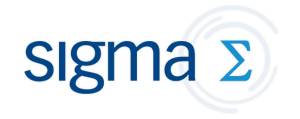Mathematics Support is a recognised collective term for extra-curricular mathematics and statistics teaching and learning services in higher education institutions. The term covers activities, facilities and/or resources provided to support and enhance students’ learning of mathematics or statistics whilst the student is enrolled on a programme of study at undergraduate or postgraduate level. Such learning support is extra, optional, and non-compulsory. It is designed to assist students in developing mathematical and/or statistical confidence and skills. Usually, no module credit is associated with a student’s engagement with a learning support activity.
Lawson, Croft & Halpin (2003) identify the salient features of mathematics support and position it among the other learning experiences provided for students in higher education institutions. There has been a huge growth in mathematics support activity over the last few years as universities have responded to the challenges presented by (a) very diverse student cohorts, and (b) the increasing “quantification” of many disciplines where students might traditionally not have expected to encounter maths or statistics.
In 2008, a report from the Public Accounts Committee urged universities to improve retention by providing ‘additional academic support for students, for example those struggling with the mathematical elements of their course’. The establishment of a mathematics and statistics support centre is one way of providing this additional academic support.
The term mathematics and statistics support centre is usually taken to mean a dedicated, physical space in which mathematics and statistics support with tutors is available at specified times. The centre may have learning resources including textbooks, leaflets and computing facilities so that students are encouraged to help themselves and not rely solely on the intervention of a tutor and student workspace to encourage learning communities. It may be in a mathematics (or other) department, a central service such as a library or skills centre or be a peripatetic service visiting student cafes and other venues. Some centres may employ their own staff dedicated to offering mathematics support whereas others may make use of mathematics and statistics lecturers and postgraduate tutors from different departments.
Mathematics and statistics support centres are a relatively new phenomenon – in the 1980s it would be hard to find a mathematics (still less statistics) support centre in a British university. The innovations that sigma has brought about over the past years (see And the winner is…) have played a large part in transforming this with a majority of institutions now offering some sort of support. Although initially many support centres were set up to assist struggling students who were in danger of failing, over the years their remit has expanded and they now provide support to many students who are doing well but want to do even better. An early snapshot 2003 overview and description of some typical maths support services and some of the issues encountered can be found here , and more up-to-date case studies of maths support provision are regularly published in MSOR Connections.
The sigma Network organises regular networking meetings and events where people working in maths support centres can share ideas and collaborate on the development of best practice. The “events” tab of this website provides further details.
